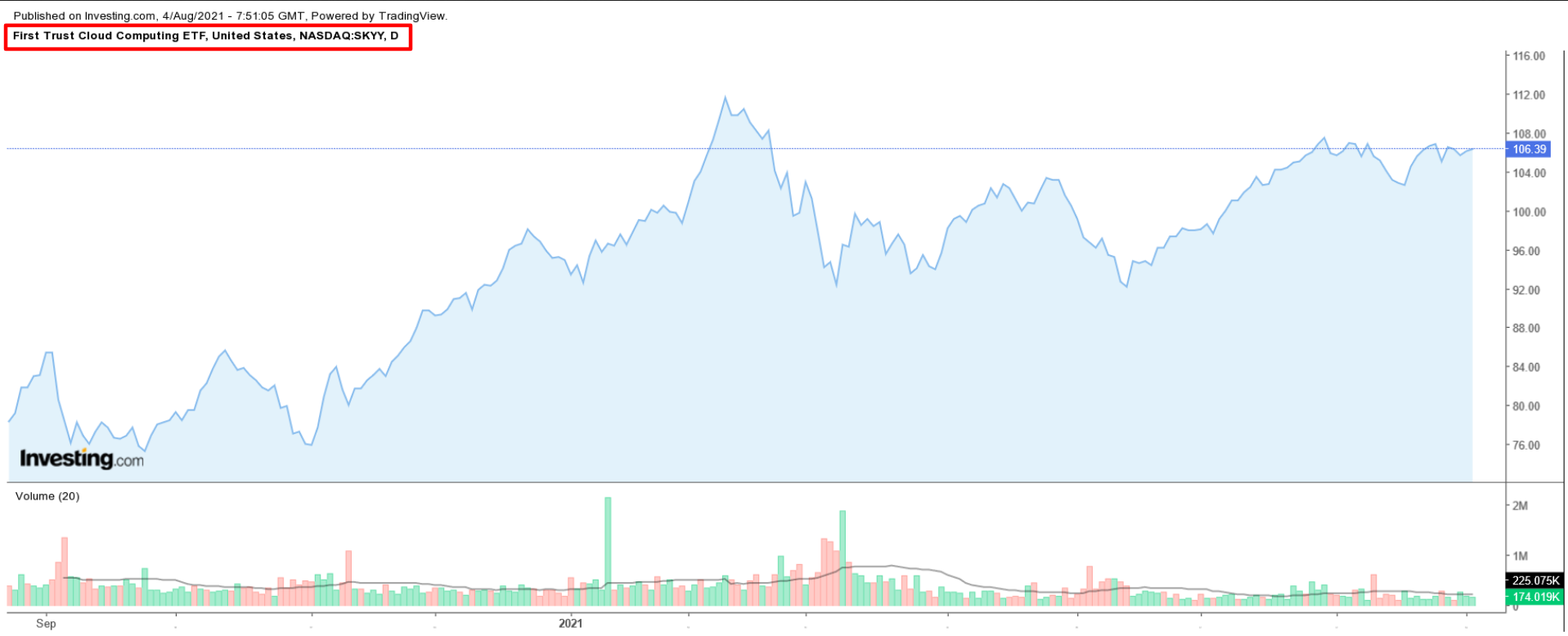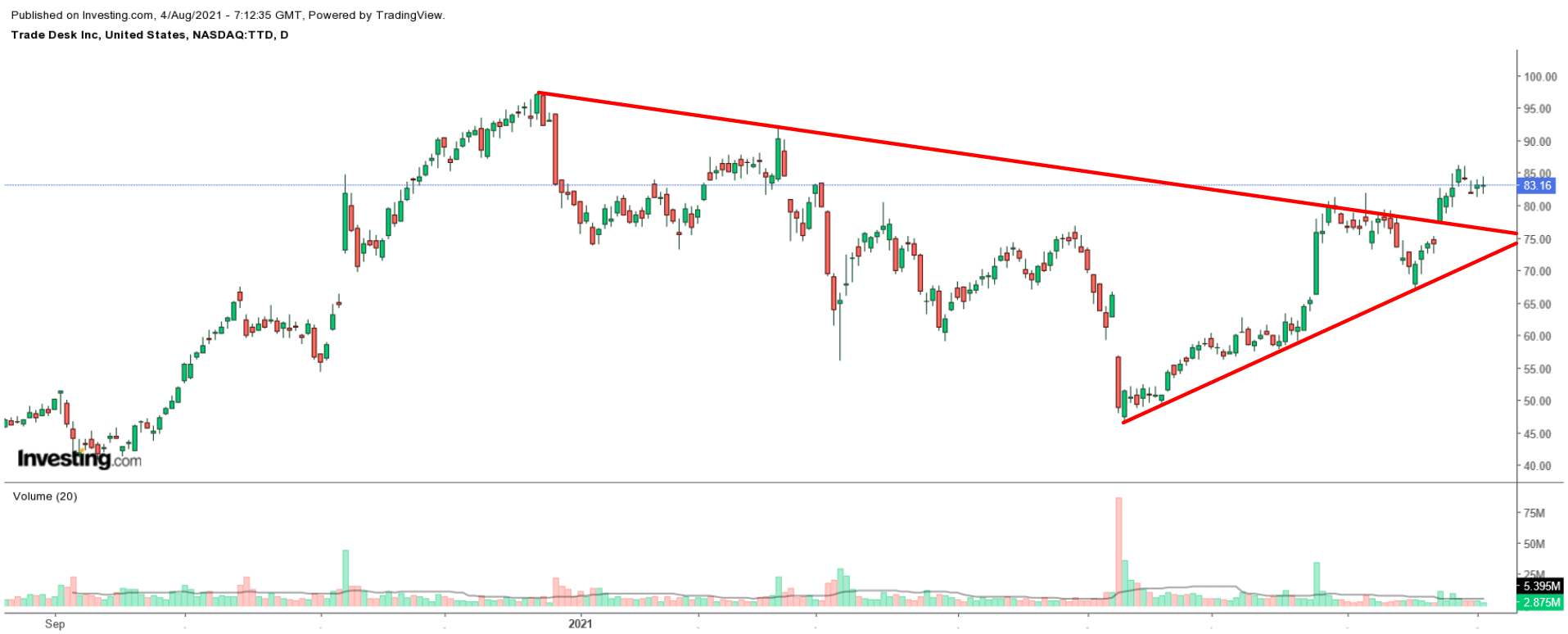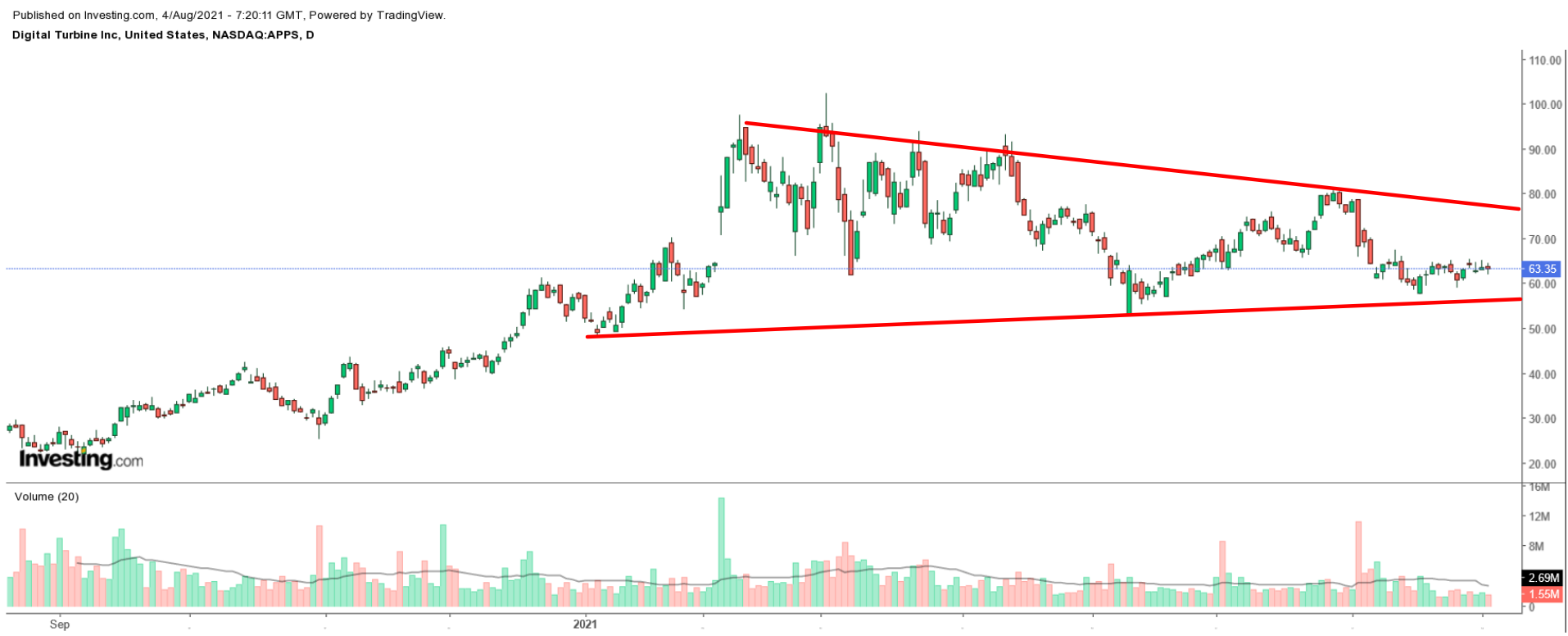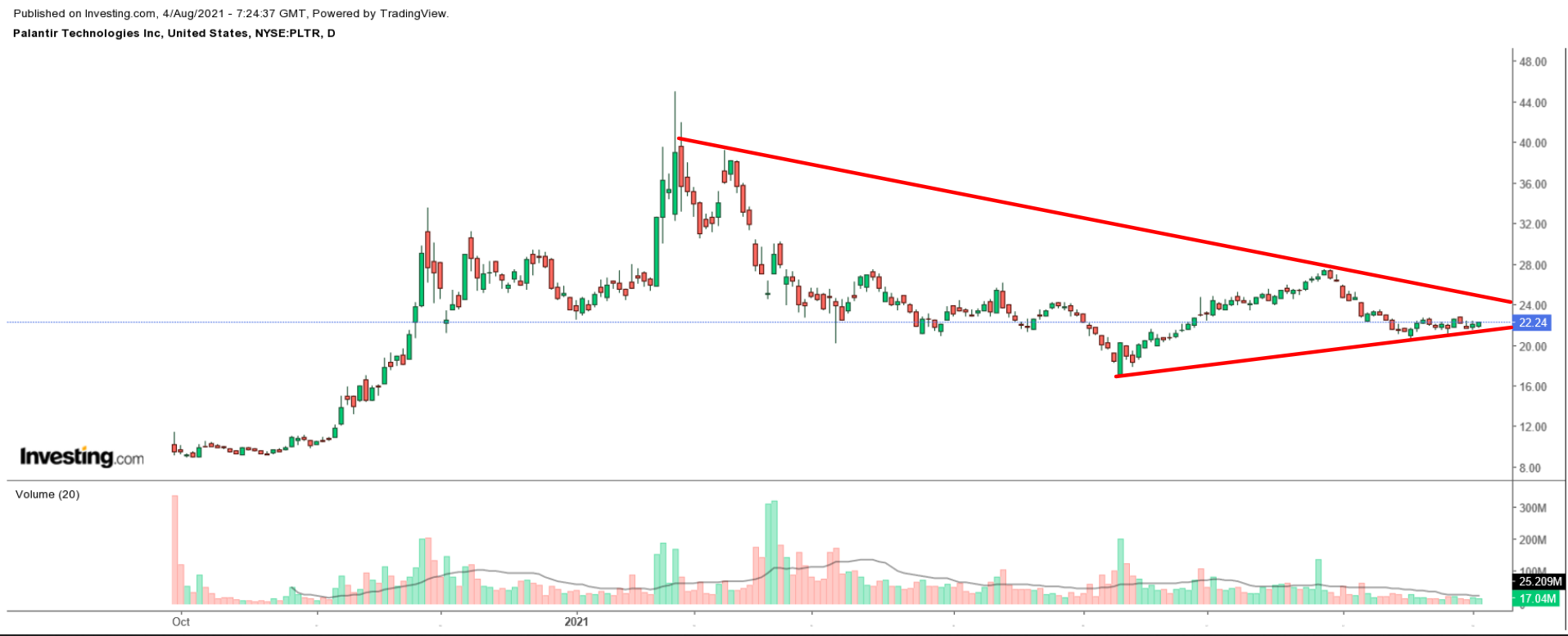Wall Street’s second quarter earnings season has all but wound down, with the high-profile U.S. mega-cap tech stocks, such as Apple (NASDAQ:AAPL), Amazon (NASDAQ:AMZN), Microsoft (NASDAQ:MSFT), Google-parent Alphabet (NASDAQ:GOOGL), Facebook (NASDAQ:FB), and Tesla (NASDAQ:TSLA), already having reported quarterly results.
While most of the focus was on those names, a variety of cloud-computing software companies—which have regained their footing following a sector-wide selloff earlier this year—are still due to post their respective results.

As such, here are three fast-growing names to consider ahead of their quarterly reports in the days ahead. All three still have plenty of room to grow their respective businesses, making them solid long-term investments.
1. Trade Desk
- Earnings Date: Monday, Aug. 9
- EPS Growth Estimate: -86.9% Y-o-Y
- Revenue Growth Estimate: +87.5% Y-o-Y
- Year-To-Date Performance: +3.8%
- Market Cap: $39.6 Billion
Trade Desk (NASDAQ:TTD), which has beaten Wall Street’s sales estimates for 19 consecutive quarters dating back to when it went public in Q3 2016, reports its latest financial results before the U.S. market opens on Monday, Aug. 9.
Consensus calls for earnings per share (EPS) of $0.12 for the second quarter, slowing nearly 87% from EPS of $0.92 in the year-ago period, mostly due to rising stock-based compensation expenses.
Revenue, meanwhile, is forecast to jump 87.5% to $261.4 million, reflecting robust growth in its online ad-buying platform, which allows customers to buy and manage data-driven digital advertising campaigns across various devices.
As such, investors will be eager to see if Trade Desk continues to enjoy explosive year-over-year growth in its connected TV (CTV), mobile video, and audio markets, which all enjoyed double-digit gains in Q1.
Market players will pay close attention to the digital ad-buying specialist’s outlook for the current quarter amid lingering uncertainty resulting from the COVID pandemic.

Shares of the Ventura, California-based company—which soared 208% in 2020 thanks to a growing wave in digital ad-purchasing during the pandemic lockdowns—have seen their ascent slow this year, climbing just 3.8%.
TTD stock, which just recently split ten-for-one, ended Tuesday’s session at $83.16, earning the ad-buying platform a valuation of $39.6 billion.
At current levels, shares remain about 14.5% below their all-time high of $97.28 reached on Dec. 22.
2. Digital Turbine
- Earnings Date: Monday, Aug. 9
- EPS Growth Estimate: +115.4% Y-o-Y
- Revenue Growth Estimate: +192.7% Y-o-Y
- Year-To-Date Performance: +12%
- Market Cap: $6.1 Billion
Digital Turbine (NASDAQ:APPS)—which shattered profit and sales records in the last quarter thanks to broad strength in the mobile media advertising market—is projected to report financial results for its fiscal first quarter on Monday, Aug. 9 ahead of the open.
Consensus estimates call for the mobile ad-tech company to post earnings per share of $0.28, improving 115% from EPS of $0.13 in the year-ago period.
Revenue is expected to soar by more than 190% year-over-year to a record $172.7 million, reflecting robust demand for its on-demand media platform, which aims to simplify content discovery and delivers relevant content directly to consumer devices.
Beyond the top- and bottom-line numbers, growth in application media revenue, the company’s biggest segment, will be in focus. The key sales metric jumped 95% year-over-year to $67.2 million in the previous quarter.
Market players will also scrutinize remarks from management related to the digital advertising company’s recent acquisitions, including Fyber, Mobile Posse, Appreciate, and AdColony.

Widely considered as one of the leading mobile content monetization platforms, Digital Turbine has seen its shares soar a whopping 350% in the last 12 months, making it one of the best-performing names in the fast-growing space.
APPS stock, which is roughly 38% below its record high of $102.37 reached on Mar. 2, closed at $63.35 last night. At current levels, the Austin, Texas-based mobile communication software provider has a market cap of $6.1 billion.
3. Palantir Technologies
- Earnings Date: Thursday, Aug. 12
- EPS Growth Estimate: -25% Q-o-Q
- Revenue Growth Estimate: +5.5% Q-o-Q
- Year-To-Date Performance: -5.5%
- Market Cap: $41.8 Billion
Palantir Technologies (NYSE:PLTR), which provides data-analytics software and services to government agencies and large corporations, is scheduled to report earnings for the fourth time as a public company ahead of the opening bell on Thursday, Aug. 12. As such, it faces no year-over-year comparisons.
Consensus estimates call for the enterprise software company—which topped estimates for profit and sales in the three preceding quarters—to post Q2 EPS of $0.03 per share, declining 25% from EPS of $0.04 in the previous quarter.
Revenue is expected to rise 5.5% from the last quarter to an all-time high of $359.8 million, benefitting from increased demand for its data-analytics software tools from government agencies around the world.
Palantir generates more than half of its total sales from government contracts. As such, investors will stay laser-focused on growth in Palantir’s government sector revenue, which surged to $208 million in the previous quarter.
Total commercial revenue, which rose to $133 million in the last quarter, will also be eyed, as the company seeks to diversify its customer base.
With 149 customers, Palantir aims to expand into various other sectors, such as health care, energy, and manufacturing.
In addition, investors will focus on Palantir’s guidance for the rest of the year and beyond. The big-data firm said in the last quarter that it expects annual revenue growth of 30% or more for 2021 through 2025.

PLTR stock ended yesterday’s session at $22.24, roughly 50% below its all-time high of $45.00 touched in late January. At current levels, the Denver, Colorado-based data-mining company has a market cap of $41.8 billion.
Despite year-to-date losses, shares of the Peter Thiel-founded analytics software provider are still up 122% since making their trading debut in September 2020, thanks to growing demand for its high-tech software tools.
